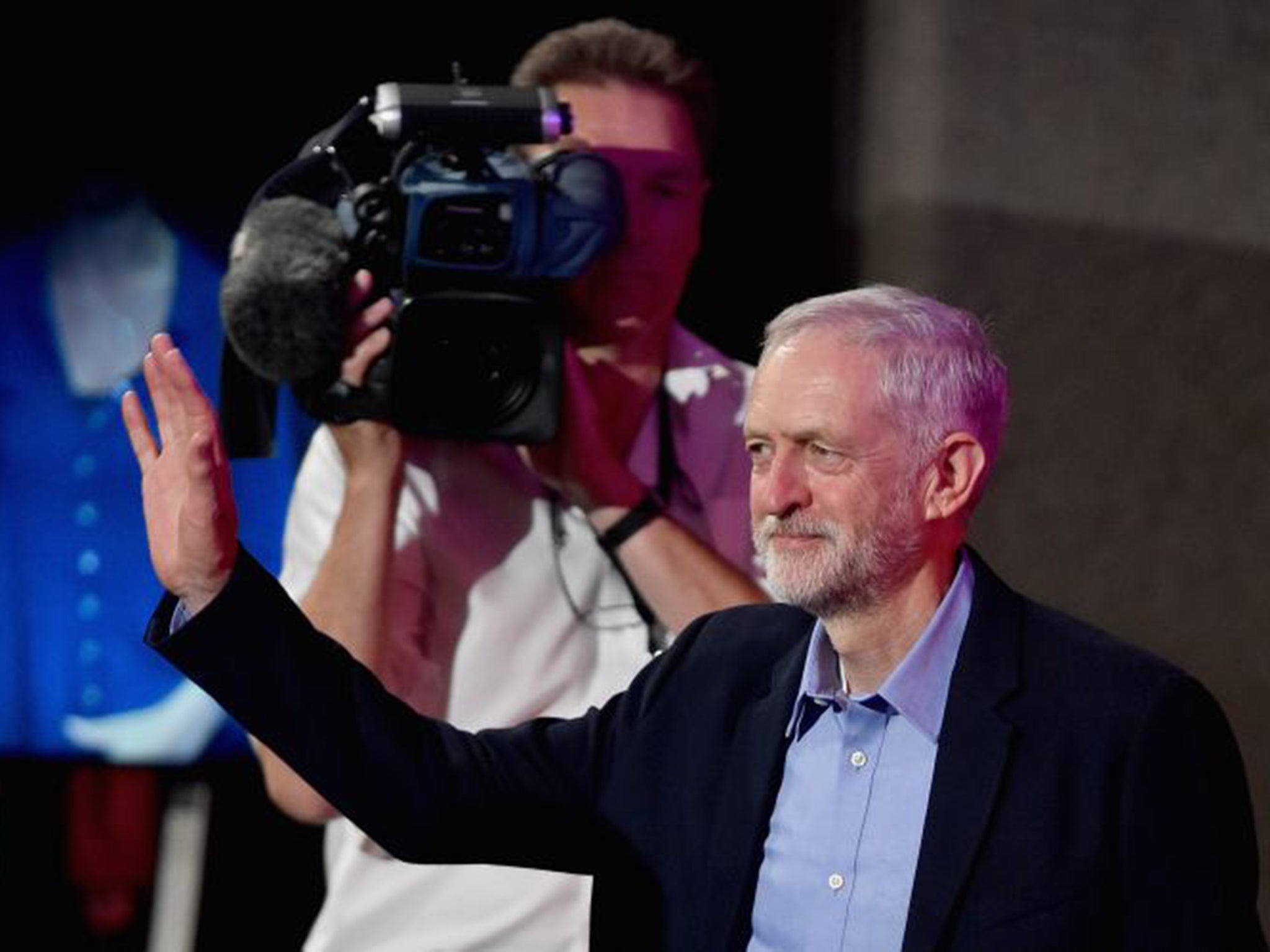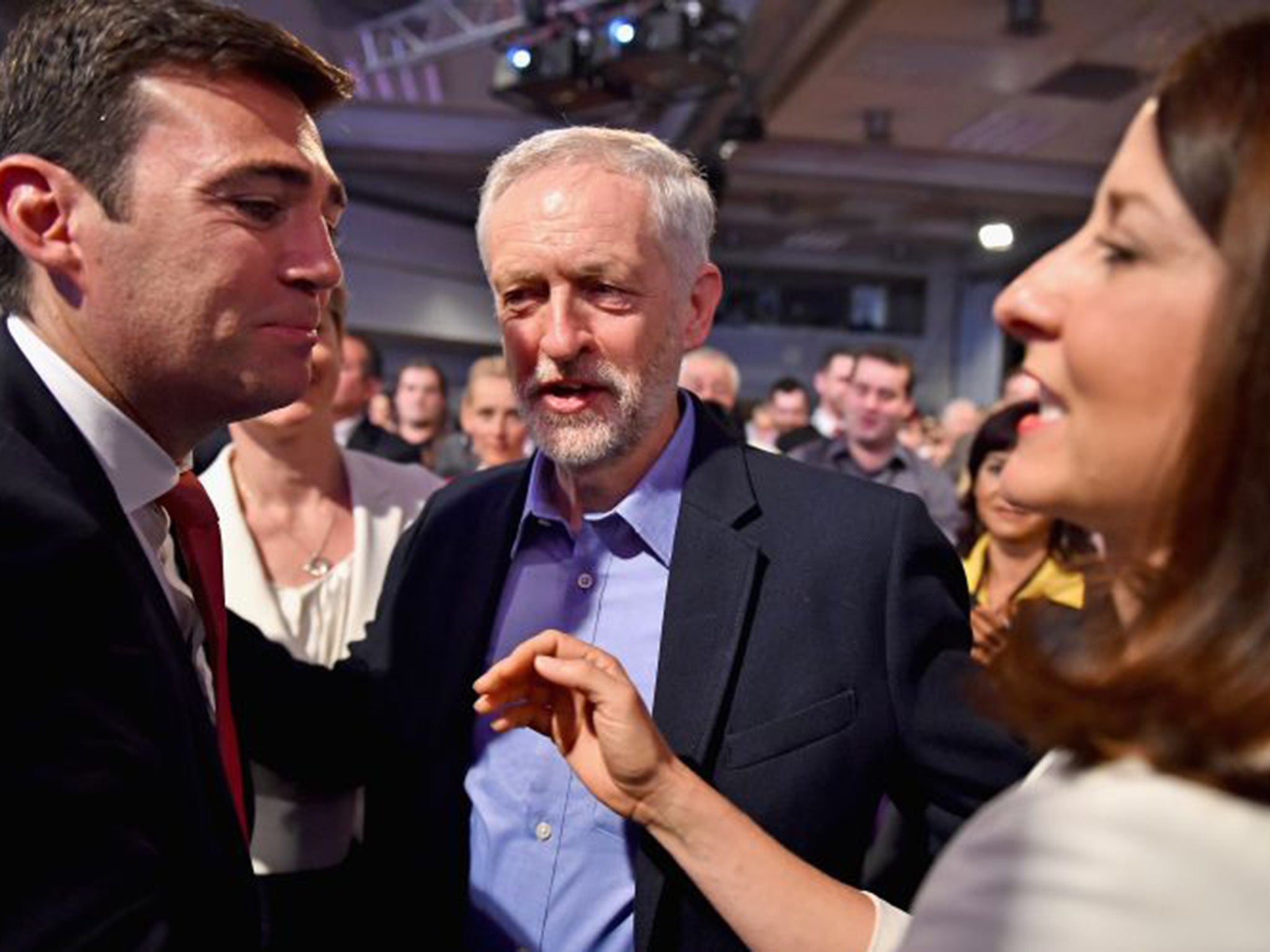Jeremy Corbyn pleas for unity fails as Labour frontbenchers sign off
Andy Burnham is the only one of Mr Corbyn’s fellow candidates who is willing to serve

Jeremy Corbyn will spend his first full day as Labour leader trying to hold together a fracturing parliamentary party after his stunning victory in which he won nearly 60 per cent of the vote in the first round. The result, just before midday, triggered a string of Shadow Cabinet and frontbench resignations, despite Mr Corbyn’s appeal for unity and his pledge to field a top team from all quarters of the party.
Fellow leadership candidates Yvette Cooper and Liz Kendall both confirmed they would not serve under Mr Corbyn; senior MPs Rachel Reeves, Tristram Hunt, Emma Reynolds and Chris Leslie left the front bench; while Chuka Umunna, who withdrew from the contest in May, is also not expected to be in the Shadow Cabinet.
Andy Burnham is the only one of Mr Corbyn’s fellow candidates who is willing to serve. In a sign of some continuity, Rosie Winterton, who is respected and admired by all wings of the parliamentary party, will remain Chief Whip.
Former shadow ministers and senior MPs from the moderate centre of the party made clear they would carry on speaking out from the back benches, including taking on the Conservative Government on the economy – the area where Mr Corbyn is most sharply at odds with the rump of Ed Miliband’s old Shadow Cabinet.
One member of Ms Kendall’s camp blasted the 35 MPs who ensured Mr Corbyn’s name was on the ballot for “failing in their duty to be a gateway” and leaving the contest open for the left-winger.
The turmoil leaves Mr Corbyn with the backing of two-thirds of grassroots members but only weak support among MPs. There are only a handful of MPs with frontbench experience who are willing to join his team. Aides said he would spend the day talking to MPs who would be happy to serve, before announcing his Shadow Cabinet on 14 September.
Mr Corbyn has also confirmed that he will take on David Cameron at PMQs only one in five times, leaving the other confrontations to fellow shadow ministers – a move which breaches parliamentary convention and is sure to ruffle feathers in the House of Commons.
As expected, Tom Watson, the combative MP for West Bromwich East, was elected deputy leader after three rounds, eventually winning 50.7 per cent of votes.
While Mr Corbyn’s victory had been widely predicted, with the odds of him winning in the hour before the result as short as 1-25, the announcement still electrified the packed Queen Elizabeth II conference centre hall and prompted shouts of “Jez We Did” from placard-waving supporters. Mr Corbyn won 251,417 of the 422,664 votes cast – a staggering 59.5 per cent of the total, while Mr Burnham and Ms Cooper trailed in second and third place respectively. Ms Kendall came fourth with just 4.5 per cent of the vote.
Mr Corbyn’s extraordinary mandate was underlined when it emerged that he had won the lion’s share of votes from full members as well as supporters who had paid just £3 to enter the ballot, denying critics the chance to claim he had been handed victory by entryists. One aide to a rival camp said it was “very difficult to argue with”.
Two hours before the result, rumours were swirling around the QEII centre that Mr Corbyn had won on the first round. Then the recriminations began.

A member of Ms Kendall’s camp tried to sound upbeat, saying a Corbyn victory would at least end the “tyranny of unity” that had existed under Ed Miliband – where no one was free to speak their mind – and there could now be a full and honest debate about how to win the next election. However, the ally also criticised the 35 MPs – some reluctantly – who had got Mr Corbyn on to the ballot, saying that one of the two game-changing moments in the campaign was “MPs failing in their duty to be the gateway” and not appreciating the risk that Mr Corbyn would streak ahead. The aide claimed that Ms Kendall could have won if Mr Corbyn wasn’t on the ballot.
The second key moment was the welfare vote in July which handed legitimacy to Mr Corbyn as the only candidate to vote against the Government. The aide described Mr Burnham, who had argued that Labour MPs should vote against, before himself abstaining, was “like following a drunk driver” because he had swerved so much to left and right.
The new leader, who is 66 and was a serial rebel under his predecessors, said in his victory speech: “During this amazing three months our party has changed. We have grown enormously, because of the hopes of so many ordinary people for a different Britain, a better Britain, a more equal Britain, a more decent Britain.”
The Prime Minister telephoned Mr Corbyn last night to congratulate him, while Ed Miliband offered him “100 per cent support”.
The Lib Dem leader, Tim Farron, also congratulated Mr Corbyn but, asked if he would serve in a Corbyn Cabinet under a Lib-Lab coalition, added: “Ha ha. I expect there not to be such a thing.”
Join our commenting forum
Join thought-provoking conversations, follow other Independent readers and see their replies
Comments
Bookmark popover
Removed from bookmarks